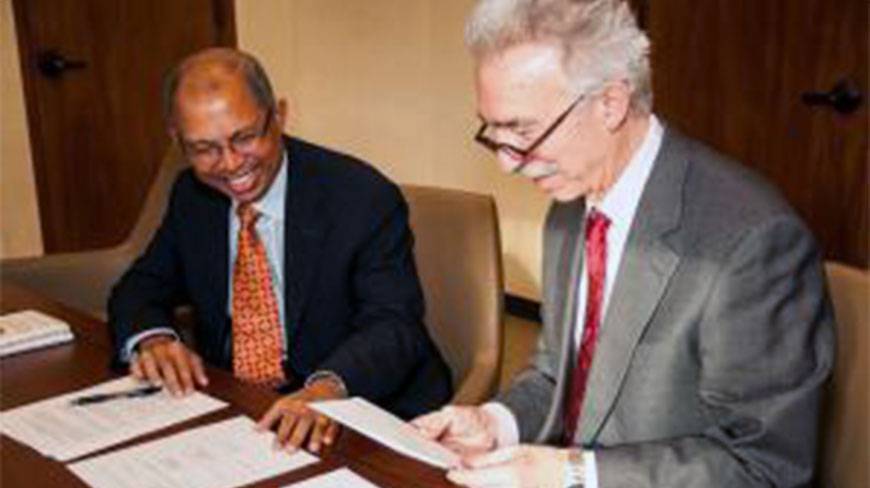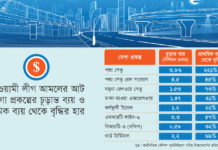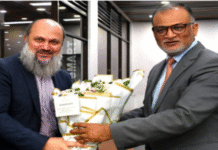The newly established Chowdhury Center for Bangladesh Studies
Thanks to a generous $1m donation by the Subir and Malini Chowdhury Foundation, the University of California Berkeley recently established the Chowdhury Center for Bangladesh Studies.
It is the first of its kind in the United States, aiming to combine research, scholarships, the promotion of art and culture, and the building of ties between institutions in Bangladesh and the US.
Since funding sources are scarce, these new fellowships aim to ensure that there is a next generation of scholars who will study and do research on Bangladesh.
“It was a really good match between his vision and what we have done at Berkeley so far,” said Ms Saxena, the executive director of the Center for South Asia Studies and Director of the Chowdhury Center for Bangladesh Studies.
Back in 2004, the Center for South Asia Studies launched the Bangla Studies endowment fundraising drive. As a result of strong community support, Bangla language, along with content courses on the culture, history and the society of modern Bengal were being offered from 2005.
But the programme struggled to stay afloat.
Now with the new Chowdhury Center, the university is able to expand its scope of study. In addition to promoting and integrating interdisciplinary scholarship, the center will sponsor lectures and conferences, and provide three scholarships.
“Our mutual goal is to encourage study, research and programming around Bangladesh and bring the scholars working on Bangladesh under one umbrella,” Ms Saxena said.
Tonima Khan, a Bangladeshi-American alumnus of Berkeley who took almost all of the South Asian courses available when she was a student, said of the news: “That is so exciting! We did not have anything focused specifically on Bangladesh when I was at Cal. Those courses focused predominantly on India and the subcontinent as a whole.
“To have an entire center dedicated just to the study of Bangladesh is incredible, because our language and culture has so much depth and richness that a simple 1-2 lectures on Bangla lit doesn’t do it justice.”
Students studying Bangla at Berkeley have varied backgrounds. There are heritage students from Bangladesh and West Bengal who probably heard Bangla being spoken at home growing up, and who may or may not know how to speak or write it themselves. On the other end of the spectrum there are students who have no South Asian heritage and are being exposed to the Bangla language and culture for the first time.
“They have varying motivations, some want to conduct research, while others just want to be able to speak with their grandparents.”
| Subir Chowdhury, the donor funding the Chowdhury Center for Bangladesh Studies, is a Chittagongian who ranks as one of the top management gurus in the world.Chairman and CEO of ASI Consulting Group, he is the author of 13 books including “The Ice Cream Maker” and “The Power of LEO.”
Having a strong sense of philanthropy and patriotism, he has already established the Subir Chowdhury fellowship for quality and Economics at the London School of Economics where priority is given to Bangladeshi applicants. We caught up with Mr Chowdhury for a brief intervew. Why did you decide to establish the Center for Bangladesh Studies? A lot of countries have their own centers here in the US, such as the Indian Center, but none exists for Bangladesh. The sad reality is Bangladesh is almost always portrayed in a negative light by the media. However, a lot of Bangladeshis are making many positive contributions in America, and in the same way Americans are doing a lot to help Bangladesh. So the question is: How can we reduce the gap between them, and I established this center with the hope of doing that. How do you plan to do so? I read that a Bangladeshi girl climbed the Everest, which is an amazing feat. She can be a fantastic leadership speaker in American universities. Very few Americans know that a Bangladeshi designed the Sears Tower, which became a structural engineering miracle. A lot of people here don’t know that February 21 is International Mother Language Day because people in Bangladesh sacrificed their lives for the Bangla language. Similarly, many people in Bangladesh don’t know that an American researcher in UC Berkeley is making a contribution to eliminating the problem of arsenic pollution in Bangladesh. The purpose of this center is to feature stories like these, and to promote cross-cultural positivity. The center also plans to feature talks on the political situation in Bangladesh in a non-partisan manner. There will be annual conferences where eminent personalities and researchers from Bangladesh will be invited to come and talk. You established three fellowships through your recent donation. What criteria would be used for selecting the recipients? I made sure one graduate fellowship is provided for research on improving the quality of life in Bangladesh … given on the basis of the merit of the proposal and how helpful the research would be for Bangladesh. I talked to scholars such as Amartya Sen who strongly supported my idea. The other fellowship will be given for work on women’s issues because I feel that research and work on women’s empowerment is essential to the development of Bangladesh. For the undergraduate scholarship, I made sure Berkeley committed to a dollar-to-dollar match. How did you get involved with Berkeley? In 1993, when I had just completed my masters, a Bangali faculty member named Raka Roy who wanted to establish teaching Bangla in Berkeley contacted me. At that time I didn’t even have ten thousand dollars in my bank account, but I promised myself that if I ever have money I would help her cause. Last year a friend posted on Facebook about the Bangla programme at Berkeley struggling to raise money, and it immediately reminded me of my resolve. So I flew in right away and met with a lot of faculty members. I was completely blown away with their commitment. What can be done to ensure stable sources of funding for more of such programs? Governments can play a crucial role. The Indian government for instance established the Amartya Sen fellowship to honour the Nobel laureate, but in contrast, think what the government of Bangladesh did with Muhammad Yunus. In Bangladesh there are a lot of multi-millionaires and I hope they get interested to make donations and create fellowships under their names at different universities. What is your message to the people of Bangladesh? I am very proud of Bangladesh in spite of its many flaws, and wherever I go, I remind people how my country made me stronger. So my message to the people of Bangladesh, especially the youth, would be that rather than going for violence, they should focus on the positives and take the negatives as challenges to overcome. I have a lot of faith in your generation, and I hope the youth don’t lose faith and continue contributing to build a better nation. Source: Dhaka Tribune |










